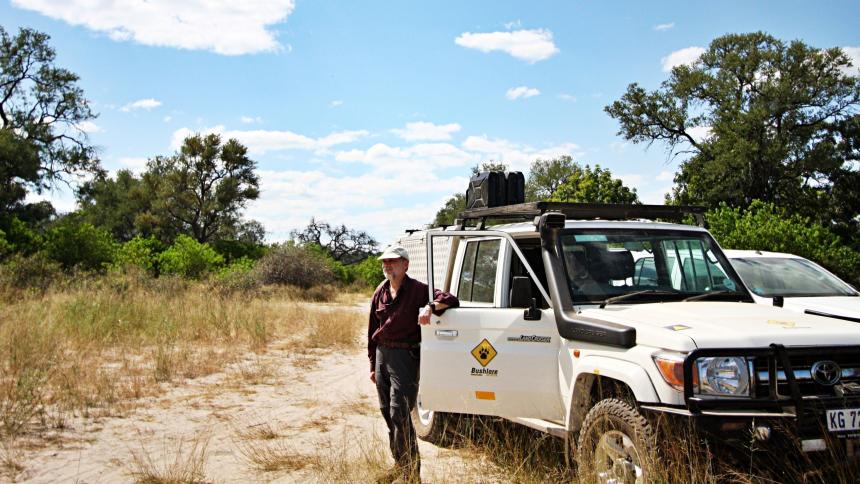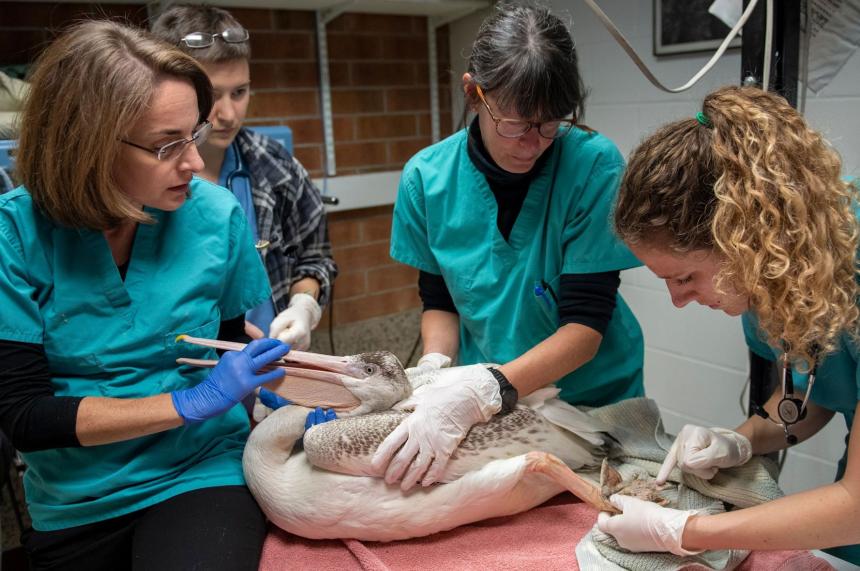In the News
April 04, 2024
Dr. Marta Castelhano, director of the Cornell Veterinary Biobank, received the 2024 Outstanding Achievement in Biobanking Award from the International Society for Biological and Environmental Repositories.

February 14, 2024
Cornell University’s College of Veterinary Medicine announced a gift of $35 million to support the Cornell Wildlife Health Center, which has been renamed to the Cornell K. Lisa Yang Center for Wildlife Health in recognition of the scale of commitment to planetary health from the donor, Lisa Yang.

February 02, 2024
Carolina Baquerizo, a fourth-year veterinary student at the Cornell University College of Veterinary Medicine, was lead author on a Frontiers in Conservation Science paper on the effects of various anesthetic drugs on cheetah sperm quality.

January 30, 2024
A transformational gift from philanthropist and Cornell alumna K. Lisa Yang ’74 will endow and rename the Cornell Wildlife Health Center as the Cornell K. Lisa Yang Center for Wildlife Health at the College of Veterinary Medicine.

November 21, 2023
Did you know that the second most common cause of injured sloths coming into rescue centers is electrocution? If not, you are in the majority. There is little to no literature about sloth electrocution in the academic world, even though it is such a pervasive problem.

May 01, 2023
Kristina Ceres' extensive research, from cattle with tuberculosis to the critically endangered great hammerhead shark, led the Wildlife Disease Association to select Ceres for a Graduate Student Scholarship Award, which recognizes outstanding academic accomplishment and future potential in wildlife research.

News
March 20, 2023
Danielle Sosnicki is a Biomedical & Biological Sciences PhD Candidate in the Travis Lab at the Cornell University College of Veterinary Medicine. She is studying mechanisms that are involved in the maturation and function of sperm, with a concentration in Zoology and Wildlife Conservation.

News
February 15, 2023
Danielle Sosnicki was first inspired to pursue graduate training in reproductive physiology after reading about the northern white rhinoceros, a functionally extinct subspecies of the white rhinoceros. “Their story is what got me interested in trying to help critically endangered species. That’s my goal,” she says....

January 18, 2023
From Ithaca to the plains of southern Africa, the Cornell Wildlife Health Center is working to heal the natural world. Launched in 2020, the center was formed to unite Cornell’s leading wildlife health professionals under a common mission: to repair the fractured relationship between people and nature.

January 16, 2023
The Cornell Wildlife Health Center has launched a new Student Support Fund for off-campus apprenticeships with free-ranging or captive wildlife, on-campus wildlife research, and student travel to present at professional conferences on wildlife health and conservation.
